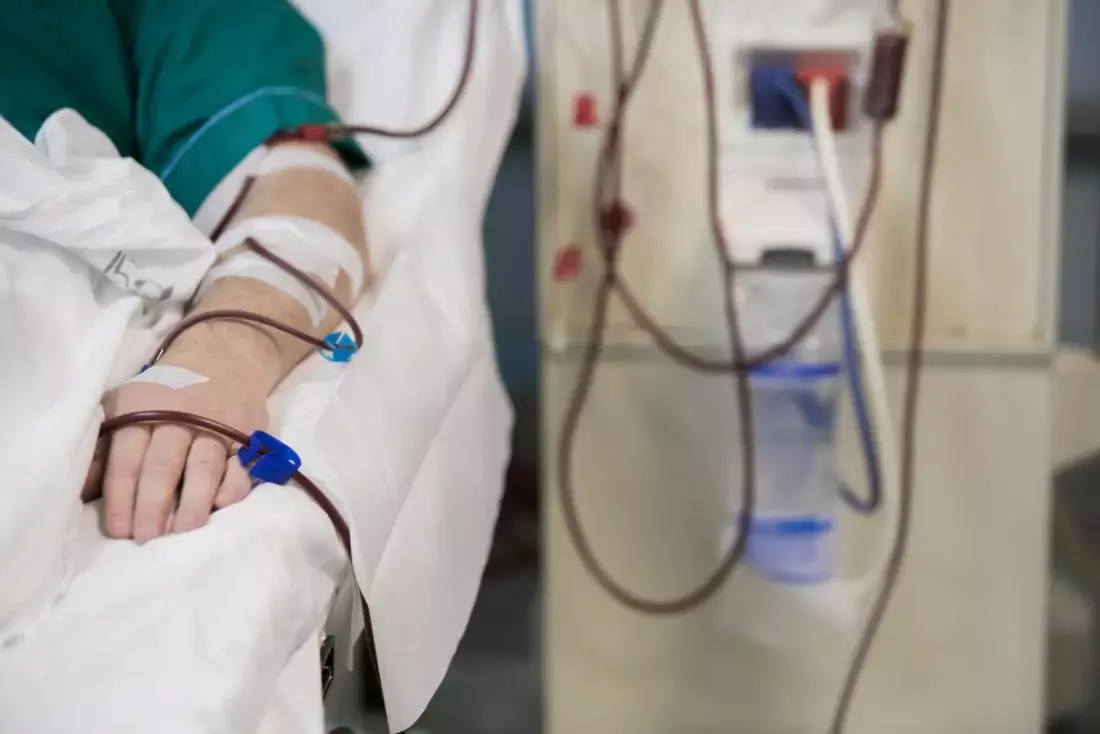- Home
- Medical news & Guidelines
- Anesthesiology
- Cardiology and CTVS
- Critical Care
- Dentistry
- Dermatology
- Diabetes and Endocrinology
- ENT
- Gastroenterology
- Medicine
- Nephrology
- Neurology
- Obstretics-Gynaecology
- Oncology
- Ophthalmology
- Orthopaedics
- Pediatrics-Neonatology
- Psychiatry
- Pulmonology
- Radiology
- Surgery
- Urology
- Laboratory Medicine
- Diet
- Nursing
- Paramedical
- Physiotherapy
- Health news
- Fact Check
- Bone Health Fact Check
- Brain Health Fact Check
- Cancer Related Fact Check
- Child Care Fact Check
- Dental and oral health fact check
- Diabetes and metabolic health fact check
- Diet and Nutrition Fact Check
- Eye and ENT Care Fact Check
- Fitness fact check
- Gut health fact check
- Heart health fact check
- Kidney health fact check
- Medical education fact check
- Men's health fact check
- Respiratory fact check
- Skin and hair care fact check
- Vaccine and Immunization fact check
- Women's health fact check
- AYUSH
- State News
- Andaman and Nicobar Islands
- Andhra Pradesh
- Arunachal Pradesh
- Assam
- Bihar
- Chandigarh
- Chattisgarh
- Dadra and Nagar Haveli
- Daman and Diu
- Delhi
- Goa
- Gujarat
- Haryana
- Himachal Pradesh
- Jammu & Kashmir
- Jharkhand
- Karnataka
- Kerala
- Ladakh
- Lakshadweep
- Madhya Pradesh
- Maharashtra
- Manipur
- Meghalaya
- Mizoram
- Nagaland
- Odisha
- Puducherry
- Punjab
- Rajasthan
- Sikkim
- Tamil Nadu
- Telangana
- Tripura
- Uttar Pradesh
- Uttrakhand
- West Bengal
- Medical Education
- Industry
Oral isotretinoin safe for treating acne in patients on dialysis: Study

London, UK: A recent study has found that low-dose isotretinoin (10-20mg) can be used safely and successfully for the treatment of severe acne in patients on renal dialysis. This significantly improves the patients' quality of life. The findings of the study are published in the journal Clinical and Experimental Dermatology.
Authors of the review article A. Gan and A. Therianou from St Mary's Hospital, Imperial College NHS Healthcare Trust, London, UK, further suggests that more studies would be more beneficial for further establishing isotretinoin's safe use in patients on renal dialysis as there is a scarcity of current literature on this topic.
The objective of the study was to systematically review the literature regarding the safety and efficacy of isotretinoin for the treatment of acne in patients on renal dialysis.
For this purpose, the researchers systematically searched the online databases in March 2021. The studies reporting the use of isotretinoin for the treatment of acne in patients with renal impairment or on renal dialysis, and having relevant implications to this topic were included.
Following were the key points of the review:
- The search resulted in a total of 63 results.
- Using the PRISMA approach, 11 articles were deemed relevant to this review: 1 randomized single-blinded placebo-controlled trial, 2 case series, 2 retrospective studies, and 6 case reports.
- The level of evidence was mostly low (Grading of Recommendations, Assessment, Development, and Evaluations level 3).
"The review of the literature indicates that low-dose isotretinoin (10–20 mg) can safely and successfully be used for acne treatment in patients on renal dialysis, leading to significant improvement in quality of life," wrote the authors.
"As the current literature on this topic is scarce, more studies would be beneficial to further establish the safe use of isotretinoin in patients on renal dialysis," they concluded.
Reference:
The study titled, "How safe and effective is prescribing oral isotretinoin to treat acne in patients on renal dialysis? A systematic review," was published in the journal Clinical and Experimental Dermatology.
Dr Kamal Kant Kohli-MBBS, DTCD- a chest specialist with more than 30 years of practice and a flair for writing clinical articles, Dr Kamal Kant Kohli joined Medical Dialogues as a Chief Editor of Medical News. Besides writing articles, as an editor, he proofreads and verifies all the medical content published on Medical Dialogues including those coming from journals, studies,medical conferences,guidelines etc. Email: drkohli@medicaldialogues.in. Contact no. 011-43720751


